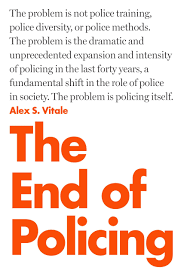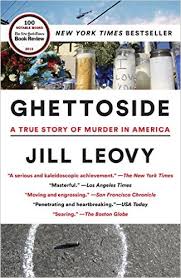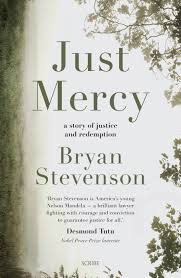Completely Rethinking Policing
 Alex S. Vitale is a professor of sociology at Brooklyn College, CUNY. His work is policy-based and in the public sphere. His latest book, The End of Policing, is a comprehensive rethink of policing and police as part of the larger criminal justice system and society itself. The aim here is not tweaks or adjustments. Vitale instead assembles just about every argument he can lay his hands to in order to present as dramatic a book, and theme, as possible. He identifies the growth and changes in the role of policing as the key justice issue facing our country. Vitale asserts that the police’s primary role today is not about fighting crime – it is about controlling poor people and those that might disrupt society. It’s a no-holds barred book that calls for a complete re-imagining of how we keep ourselves safe and secure. The result is fascinating and provocative – without necessarily being accurate or persuasive.
Alex S. Vitale is a professor of sociology at Brooklyn College, CUNY. His work is policy-based and in the public sphere. His latest book, The End of Policing, is a comprehensive rethink of policing and police as part of the larger criminal justice system and society itself. The aim here is not tweaks or adjustments. Vitale instead assembles just about every argument he can lay his hands to in order to present as dramatic a book, and theme, as possible. He identifies the growth and changes in the role of policing as the key justice issue facing our country. Vitale asserts that the police’s primary role today is not about fighting crime – it is about controlling poor people and those that might disrupt society. It’s a no-holds barred book that calls for a complete re-imagining of how we keep ourselves safe and secure. The result is fascinating and provocative – without necessarily being accurate or persuasive.
Opening the book, Vitale provides a brief historical overview of how police forces emerged in history. Those early efforts, which were often about maintaining political power through enforcing racism, classism and other forms of control, remain embedded in police forces today, he argues. Policing can actually worsen the problems it is supposedly is supposed to solve, he claims. The “wars” we have waged in recent years – on homelessness, on gangs, on drugs and on terror – have been distractions and means to increase funding and support for a neoliberal police state. In other words, we have started to label every social problem as an issue best addressed through more policing. Vitale buttresses his arguments with data and illustrations of the militarization and funding of modern policing.
Vitale claims that regardless of whatever reforms police might make, from use of data to community policing, the underlying hostility between the policed public and the police will remain. In addition to being ineffective, Vitale also argues that the expansive use of the police for social control is very expensive.
What we should be doing, Vitale states, is really thinking through what, exactly, we want the police to do. He also want society to engage in a major re-think about social problems, like poverty, hunger and homelessness, using different lenses of policy and expectations. If this takes place, he argues, then there will be a different way for society to think about crime, crime prevention and justice.
He calls for legalizing sex work, drugs, and keeping police out of the schools. Vitale believes that much more can be done with restorative justice and community involvement in public safety. Vitale seeks more funding for mental health professionals and mental health systems, as well as for troubled adolescents and the jobless. He wants, in sum, an across the board redo of how government supports and promotes social welfare.
Vitale’s controversial argument makes one think. The book forces hard questions about what and how policing works. It raises many questions, most of which have me wondering about expectations, change and politics. I would be interested to hear how community and political leaders would respond to the book and its arguments. My hunch is that it would be greeted with skepticism by some and interest by others, especially those who leading the push for more accountable democratic socialism in government. But would a redo of policing be the first move, the foot in the door, the area of change that would generate the most support? I do not believe so. For many good reasons, we need and depend upon a professional and accountable police force. They are, in many ways, doing what no one else can or will do.
We also are often reminded, too, that the threats that social scientists tell us are more real are not necessarily the threats that move policy or politics. Take gun control, for example. Many in the policy sphere argue that a curtailment of availability of weapons would increase safety. Politically, there is less willingness to move in that direction. Terrorism is another example. Concern about foreign terrorists has been a catalyst for many policy changes. The data suggests, though, that there are probably more “likely” threats.
For the near future, I believe that Vitale’s book will find a more receptive audience in academia, especially sociology classrooms, than in the neighborhoods or city halls.
David Potash

